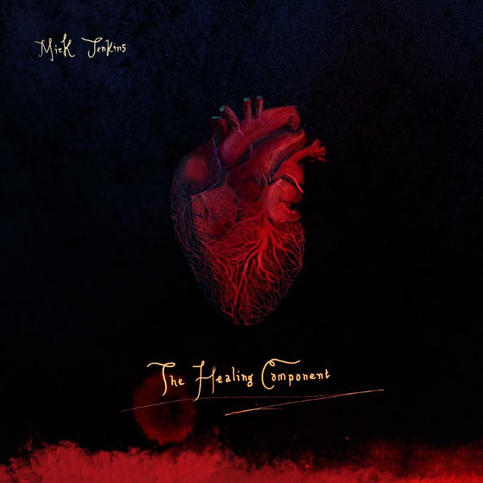Album Review: Mick Jenkins, The Healing Component
Mick Jenkins
The Healing Component (released September 23, 2016)
Merely a few seconds into his debut album, Mick Jenkins asks this burning question:
“Why is praising mediocrity such a skill?”
Yeah, I’ve been asking that very same question for the past nine months.
Many of 2016’s biggest rap releases have been crippled by a lack of meaningful content. Once the flavor-of-the-month beats and repetitive hooks fade from memory, there’s nothing left to entice the listener to pull up that playlist again.
In an era of disposable music, Mick Jenkins is bringing heart back to hip-hop. The Healing Component is an exploration of that heart – love, spirituality and resolve.
Jenkins has been holding down the independent scene for a few years now, with his The Water[s] mixtape and Waves[s] EP showcasing classic wordplay and more experimental sounds, respectively. The Healing Component marries those two styles to create a project that’s dense with lyricism yet shrouded in moody soundscapes.
Yet it’s the album’s concepts that shine brightest – in a climate where black men are unjustly gunned down seemingly every week, Jenkins preaches hope and faith during the darkest of days. While it’s too drugged out to be a gospel album and too uplifting to be called trap, The Healing Component is a brilliant contradiction of black pride and pain. This is the album hip-hop needs right now.
Openings tracks “Spread Love” and “Daniel’s Bloom” prove that positivity doesn’t have to be saddled with sappiness. The threatening production of the latter really drives home Mick’s message:
Don’t let the struggle make your heart harder
Sip the truth, spit the truth
That’s the smart water
I’m talkin’ gospel, J Hova, no Shawn Carter
“Strange Love” shows Jenkins wrestling with acceptance and identity (“n****s claimin I’m changin’ because my clothes ain’t always been expensive … I detest the pretentious, bougie”) while casting off the evils of materialism on “Prosperity” (“big bracelets, rollies, big faces, Jesus pieces can’t save you”).
But again, credit the murky, atmospheric beats for floating Jenkins’ messages. I wasn’t a huge fan of the single “Drowning” when it was initially released, but his pained crooning works much better within the scope of the whole album. Likewise, the warped soundscape of “As Seen in Bethsaida” is the perfect setting for Mick to solemnly wrestle with his sins:
The love ain’t even appreciated these days
N****s depreciated the value
Heard God’s whisper then lowered the volume
Then popped him a Valium
While the psychedelic score of “1000 Xans” becomes a haven where he drowns his sorrows.
How they lie to our faces and still we choose to believe
I’ve been exposed to new spaces, it’s getting harder to breathe
The black Neo of this Matrix
Directing homeostasis
But still all my homies bleed
No pay phones it’s getting harder to leave
Tobacco leaves, run the trees in the breeze these days
Rolling them s***s with ease these days
As heavy as The Healing Component can be, this is, after all, an exploration of the heart and there are times where Mick’s optimism overrides his sorrow. “Love, Robert Horry” isn’t just one of the best lyrical showcases on the album, it’s also one of the more uplifting:
Always moving with conviction even if they gon’ convict me
Yeah they hit me with the sentence all that did was teach me patience
All I did was finish Trees & Truths and start The Water[s]
And I wrote every single word like a court reporter’s attention to detail
The Healing Component is a very heavy, sometimes ponderous listen, one that will take multiple listens to truly unpack. That might turn off some impatient listeners. But that’s the healing process for you – it’s slow and sometimes uncomfortable, but it’s the only way to make us better.
Slowly but surely, Mick Jenkins is making hip-hop better.
Best tracks: “Love, Robert Horry,” “1000 Xans,” “Daniel’s Bloom”
4 stars out of 5


Great review for a great album